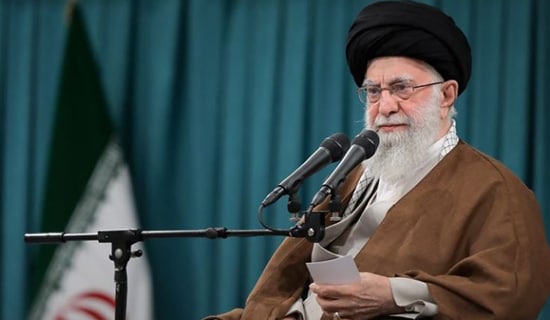Introduction
In recent years, Singapore has not been immune to the influence of global jihadism, especially with the self-radicalization of Muslim youths in favor of the Islamic State (ISIS) and Al-Qaeda. In March 2016, Singaporean Home Affairs Minister K. Shanmugam announcing a counter-terrorism strategy for Singapore, noted: "As many as 1,000 people from Southeast Asia - mainly Indonesians and Malaysians who 'are willing to die' - have travelled to Syria or Iraq to join ISIS and some of them have joined the ranks of Katibah Nusantara, an ISIS combat unit led by Southeast Asians and made up exclusively of Malay-speaking fighters."[1]
The jihadi threat to Singapore - neighbor to Malaysia and Indonesia - originated mainly from Jema'ah Al-Islamiyyah, the Indonesian terror group responsible for many attacks, including the Bali bombing of 2002.[2] More recently, the jihadi threat in the Southeast Asian countries has been growing, more so after the emergence of ISIS. In a paper published by the Middle East Media Research Institute (MEMRI) in September 2014, this writer noted an increasing trend of Muslim youths self-radicalizing in favor of ISIS in the Philippines, Indonesia, Malaysia, Singapore, and Thailand, as well as in South Asia.[3] Calls were made from Indonesian prisons for youths to offer bay'ah (oath of allegiance) to ISIS leader Abu Bakr Al-Baghdadi, and local youths from Southeast and South Asia went to Syria to join the Islamic State.[4]
Singapore is a multicultural city state where the main spoken languages include English, Malay, Mandarin, and Tamil, while the key religions followed by its residents are Buddhism, Taoism, Islam, Christianity, and Hinduism.[5] While Singaporean citizens have been arrested over connections with ISIS, the threat to the city-state emanates mainly from non-Singaporean youths who arrive to work. Singapore is acutely aware of jihad-related developments in its neighboring countries, especially in Indonesia and Malaysia. Home Affairs Minister K. Shanmugam also noted that in 2015 Malaysia foiled seven terror plots and arrested more than 100 people with suspected links to ISIS, but, significantly, the suspects included "government officials such as commandos, police officers and civil servants."[6]
The jihadi threat to Singapore, as discussed below, remains current. This paper reviews some of the latest developments involving jihadi suspects, both locals and expatriates, in Singapore, insofar as these shed light on the present situation. Some noticeable trends are the following: 1) jihadis attempt to use Singapore as a transit route to reach Turkey, with Syria being their final destination; 2) jihadis radicalize youths on Singaporean territory to carry out attacks abroad; and 3) Singaporean youths are also susceptible to jihadi teachings and did join the Islamic State.

27
Bangladeshi terror suspects detained by Singapore (image: thedailystar.net)
Bangladeshi Terror Suspects
In January 2016, it emerged that a group of 27 male Bangladeshi workers were arrested by the authorities in Singapore for plotting jihadi activities in Bangladesh. According to a media report, "the group, which has been meeting since 2013, supported the armed jihad ideology of terrorist groups such as Al-Qaeda and the Islamic State in Iraq and Syria (ISIS)."[7]
The report noted: "Of the 27, 26 were members of a closed religious study group that subscribed to extremist beliefs and teachings of radical figures like Anwar Al-Awlaki" and "The remaining man was not a member of the study group, but was discovered to have been undergoing radicalization. He supported extremist preachers and possessed jihadi-related material."[8] Twenty-six of them were deported to Bangladesh, where 14 were charged under terrorism laws.[9]
In April 2016, eight young Bangladeshi men, aged 26 to 34, were detained by Singaporean officials because they were "planning to stage terror attacks back home [in Bangladesh]."[10] Their original intent was to go to Syria to join ISIS. As per the report, they "called their group the Islamic State in Bangladesh (ISB) and intended to join terror group ISIS as foreign fighters in Syria and Iraq. But as it was difficult to travel to the Middle East, they focused on returning to Bangladesh to topple their government through violent means..."[11]
In May 2016, it emerged that Singapore had detained five more Bangladeshi nationals and deported them over suspected jihadi activities. After their arrival in Bangladesh, the five men were arrested under terrorism charges.[12] They were identified as Mizanur Rahman alias Ghalib Hasan, 38; Md. Rana Mia Pilot, 29; Md. Alamgir Hossain, 31; Md. Tanjimul Islam, 24; and Masud Rana alias Sontu Khan, 31. Of them, Mizanur Rahman, the ringleader, had established the Islamic State of Bangladesh (ISB).[13] A document titled "We Need for Jihad Fight," seized from Rahman, listed military targets in Bangladesh, including navy, air, border force and counter-terror officials.[14]

Four
Indonesians deported by Singapore: (Clockwise from top left) Untung Sugema
Mardjuk. Mukhlis Koifur Rofiq, Risno and Muhammad Mufid Murtadho (Photo:
Straitstimes.com)
Indonesian Terror Suspects
In November 2015, Singapore arrested two Indonesian youths, after it emerged that they were trying to go to Syria via Turkey to join the Islamic State.[15] The two youths were identified as Muhammad Rizka Fajri, 27, and Firman Fitrianeldi, 30. According to an Indonesian police officer, "the two men claimed that they had been offered jobs in Syria that paid a monthly wage of Rp 3 million (US$214 ) by a man they met on Facebook."[16]
In February 2016, Singapore deported four Indonesian youths, including a 15-year-old, after it was suspected that they were "en route to the Middle East to join the Islamic State."[17] The four suspects, caught during transit, were identified as Muhammad Mufid Murtadho, Untung Sugema Mardjuk, Mukhlis Koifur Rofiq, and Risno. It appears that the Singaporean authorities look closely into the travel patterns of terror suspects before detaining them.[18] The four "admitted to having a personal association with known terrorist convict Aman Abdurrahman" who is imprisoned by Indonesia.[19]
As per a report of the Indonesian Foreign Ministry, "A total of 217 Indonesians have been detained or deported, mostly in or from Turkey, as they were linked to terrorist groups by their host countries."[20] As per the report, "200 Indonesians were found in Turkey, five in South Korea (with three people later released), three in Malaysia, two in Saudi Arabia, two in Japan (both were released) and one in Sudan, who was later released."[21] Indonesia fears that "up to 500 of its citizens have been lured to the Middle East" by ISIS.[22]
Singaporean Jihadis Arrested
In April-May 2015, officials in Singapore arrested two Singaporean teenagers for jihad-related activities. Of them, post-secondary student M. Arifil Azim Putra Norja'i, aged 19, is "the first known self-radicalized Singaporean to harbor the intention to carry out violent attacks in Singapore."[23] As per a report, he "had made plans to join the Islamic State in Iraq and Syria (ISIS), and if he was unable to join the terrorist group there, planned to strike here [in Singapore]."[24] A second person, a 17-year-old who was not named, was detained separately over issues related with the extent of his radicalization.[25]
In May 2015, Mustafa Sultan Ali, a 51-year-old Singaporean who was radicalized by the ISIS ideology, left for Syria to join the Islamic State. Ali was "was prepared to carry out ISIS-directed terrorist attacks against Western establishments in Singapore" but he was deported by Turkey and imprisoned for two years.[26] In 2015, two Singaporean nationals were detained for planning to join ISIS. Muhammad Shamin, aged 29, and Muhammed Harith Jailani, 18, were arrested in separate cases. Shamin was convicted of raising funds to travel to Syria and was jailed for three months "for inciting religious violence through pro-ISIS postings on social media."[27] Harith was radicalized through online propaganda and "harbored the intention to carry out armed jihad" for ISIS.
Also, Singapore nationals who were arrested for fighting abroad included Mohammad Razif Yahya, aged 27, and Amiruddin Sawir, 53. The two were arrested "for voluntarily fighting in the sectarian conflict in Yemen."[28] A third Singaporean, Mohamed Mohideen Mohamed Jais, 25, was given a restriction order for performing armed duties in Yemen.[29] It was also revealed earlier in 2014 that a Singaporean wife and her teenage daughter and son moved with her Malaysian husband to Syria, with the son joining Jabhat Al-Nusra and the stepfather joining ISIS.[30]
According to a report that emerged in March 2016, a 23-year-old naturalized Singaporean of Chinese origin, Wang Yuandongyi, had developed empathy for the sufferings of Kurds in Syria and, in order to fight ISIS, left Singapore sometime in early 2016.[31] However, due to prompt intervention by Singaporean authorities, he was turned back from his trip midway by a third country. This is a unique case of anti-ISIS radicalization, but interestingly matches some parameters with pro-ISIS radicalization - as per the Singaporean officials - as he had suffered setbacks in business, was in debt, had established communication with anti-ISIS Kurdish militia groups, and was looking for escape from personal failures.[32]

Singaporean-Indian
Haja Fakkurudeen (in the inset) - image courtesy: TimesofIndia.com)
Indian/Singaporean Jihadis
Earlier in mid-2014, it emerged that Haja Fakkurudeen, an Indian-born Singaporean national, had joined the ISIS in Syria. According to an Indian media report, Fakkurudeen, aged 37, telephoned his parents in the southern Indian state of Tamil Nadu "to say he was well and his dream had come true. He was now living in Syria with wife Ayesha Siddika and their three children."[33] Fakkurudeen had left India a decade ago to settle in Singapore.
Fakkurudeen's case alerted Indian security officials in Tamil Nadu state, where local youths, wearing t-shirts with pro-ISIS slogans had posed for group photograph at a mosque and it was discovered that there were also attempts to recruit local Tamilian youths to join the ISIS.[34]
It also emerged at that time that Singapore deported one Tamilian youth to India: Gul Mohammad Maraikar, aged 37, for "distributing 'jihadi' literature among a group of youths which included his friend Fakkurudeen."[35] Other than Fakkurudeen and his friend Gul Mohammad Maraikar, it does not appear that Singapore, which has a significant population of Tamil-speaking Indian immigrants, has detained or deported any other Indian.

Singapore
is surrounded by Malaysia and Indonesia, two Muslim nations affected by ISIS
Conclusion
Perhaps the biggest jihadi threat to the Southeast Asian region as a whole was detected in mid-2014. On July 1 of that year, a Singaporean newspaper reported: "Four new terrorist organizations aiming to establish an Islamic Caliphate in the region - called Daulah Islamiyah Nusantara and comprising Malaysia, Indonesia, Singapore, southern Thailand and southern Philippines - have emerged and are embarking on an aggressive recruitment drive."[36] This was a plot to establish a regional mini-caliphate in Southeast Asia but was foiled due to Malaysian intelligence.
In September 2015, Professor Rohan Gunaratna, a terrorism expert based in Singapore, noted that "there are now 30 terrorist groups [that have] pledged to ISIS, including 22 in Indonesia and five in Malaysia. More than 600 people from Southeast Asia have also left to fight with ISIS militants, including over 500 Indonesians and nearly 100 known recruits from Malaysia."[37]
A look at the arrests and deportations by Singapore makes it clear that the nationalities involved are Bangladeshi, Indonesian, Indian, and Singaporean. It is pertinent to mention here that while the neighboring Malaysia has been affected by ISIS and has made numerous arrests at home, it does not appear that Malaysians have been found active in Singapore, which takes the issue seriously.[38] However, the jihadi threat to Singapore remains current in 2016. But, it is equally noticeable that counter-terrorism officials in Singapore have prevented many terror attacks - which could have occurred abroad or in Singapore - by busting terror cells that sought to use Singapore as a transit route or its territory to plot attacks abroad, notably in Bangladesh.
* Tufail Ahmad is Director of the MEMRI South Asia Studies Project. He is the author of Jihadist Threat To India - The Case For Islamic Reformation By An Indian Muslim.
Endnotes[1] Benarnews.org, March 18, 2016.
[2] En.wikipedia.org/wiki/2002_Bali_bombings, accessed May 9, 2016.
[3] MEMRI Inquiry & Analysis No. 116, Growing Support For The Islamic State (IS) From South Asia To The Far East; Four New Jihadist Groups Planning Islamic Caliphate Comprising Malaysia, Indonesia, Singapore, Thailand, And Southern Philippines, September 10, 2014.
[4] MEMRI Inquiry & Analysis No. 116, Growing Support For The Islamic State (IS) From South Asia To The Far East; Four New Jihadist Groups Planning Islamic Caliphate Comprising Malaysia, Indonesia, Singapore, Thailand, And Southern Philippines, September 10, 2014.
[5] BBC.com (UK), January 29, 2015.
[6] Benarnews.org, March 18, 2016.
[7] Straitstimes.com (Singapore), January 20, 2016.
[8] Straitstimes.com (Singapore), January 20, 2016.
[9] BDnews24.com (Bangladesh), January 20, 2016.
[10] Straitstimes.com (Singapore), May 3, 2016.
[11] Straitstimes.com (Singapore), May 3, 2016.
[12] TheDailyStar.net (Bangladesh), May 4, 2016.
[13] TheDailyStar.net (Bangladesh), May 4, 2016.
[14] TheDailyStar.net (Bangladesh), May 4, 2016.
[15] TheJakartaPost.com (Indonesia), November 10, 2015.
[16] TheJakartaPost.com (Indonesia), November 10, 2015.
[17] AsiaOne.com (Singapore), February 23, 2016.
[18] AsiaOne.com (Singapore), February 23, 2016.
[19] TheJakartaPost.com (Indonesia), February 23, 2016.
[20] TheJakartaPost.com (Indonesia), February 25, 2016.
[21] TheJakartaPost.com (Indonesia), February 25, 2016.
[22] TheJakartaPost.com (Indonesia), July 28, 2015.
[23] Straitstimes.com (Singapore), May 27, 2015.
[24] Straitstimes.com (Singapore), May 27, 2015.
[25] Straitstimes.com (Singapore), May 27, 2015.
[26] ChannelNewsAsia.com (Singapore), July 28, 2015.
[27] AsiaOne.com (Singapore), September 30, 2015.
[28] Straitstimes.com (Singapore), March 16, 2016.
[29] Straitstimes.com (Singapore), March 16, 2016.
[30] Straitstimes.com (Singapore), September 12, 2014.
[31] Straitstimes.com (Singapore), March 17, 2016.
[32] Straitstimes.com (Singapore), March 17, 2016.
[33] TimesOfIndia.com (India), July 21, 2014.
[34] MEMRI Inquiry & Analysis No. 116, Growing Support For The Islamic State (IS) From South Asia To The Far East; Four New Jihadist Groups Planning Islamic Caliphate Comprising Malaysia, Indonesia, Singapore, Thailand, And Southern Philippines, September 10, 2014.
[35] TimesOfIndia.com (India), July 21, 2014.
[36] TodayOnline.com (Singapore), July 1, 2014.
[37] AsiaOne.com (Singapore), September 30, 2015.
[38] ChannelNewsAsia.com (Singapore), January 12, 2016.








